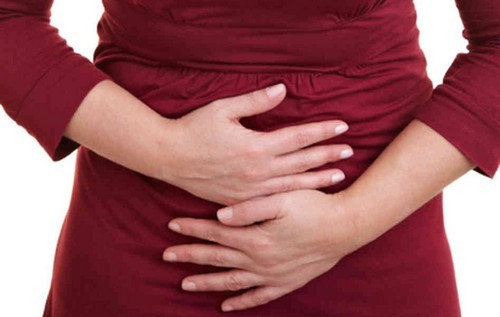To prevent the risk of complications during gestation, first sign up to a gynecologist and endocrinologist.
Reproductive health is a sore subject for many women. But does everyone who is confident in their invulnerability undergo annual screening by doctors? No. But in vain!
The US Department of Health portal MedlinePlus recommends taking a blood test, and discussing with your doctor chronic and hereditary diseases, your medications and dietary supplements.
Body examination
Particular attention should be paid to long-term illnesses such as diabetes and asthma, which should not reach seizures before pregnancy. All this affects the health of the future fetus, and in some cases it threatens a miscarriage or infertility of an unclear history. Take your health seriously.
Doing sports
Obesity of 1 or higher degree is dangerous for the fetus – the hormonal background of the mother can change rapidly, which will affect the rate of development of the embryo. The doctor will recommend that you lose weight to normal, an approximate formula: height – 100 = weight. Doctors also advise connecting physical activity to proper nutrition. On average, endocrinologists set the standard in the form of 8 thousand steps per day or 30 minutes of physical education.

Decaffeinated coffee
Many bloggers try to make fun of readers’ questions about whether it is possible to drink coffee during pregnancy. In fact, they themselves should have read more modern reproductive textbooks. Researchers Gregor and Ramos in Preconception and antenatal care indicate that drinking more than 2 cups of coffee a day or 5 cans of carbonated drinks containing caffeine reduces fertility and increases the risk of miscarriage.
Smaller sea fish
Mercury is found in marine fish – this is not a secret for many people. Moreover, it tends to accumulate in the body with regular consumption of fish. Pregnant women are advised to eat no more than 340 g of fish per week. Raw tuna in the composition by yourself and other dishes should be consumed even less – no more than 170 g per week.

Folic acid
Take vitamin and mineral supplements that contain at least 0.4 mg (400 mcg) of folic acid. Folic acid reduces the risk of birth defects, especially problems with the baby’s spine. At the same time, avoid high doses of any vitamin, especially vitamins A, D, E and K. These vitamins can cause birth defects if you take them at a dose higher than the recommended daily.
Is it true that if you give birth, all diseases will pass
The belief that everything will pass after childbirth is associated with primary dysmenorrhea – persistent and causelessly painful menstruation. In such cases, menstrual pain is not a symptom of any particular disease, it occurs as an independent phenomenon. Usually, primary dysmenorrhea occurs when menstruation becomes regular. The maximum of painful sensations can occur by 18-20 years. Girls undergo examinations, do an ultrasound scan, take tests, but they don’t find any diseases. Then they say: “You will give birth – and everything will pass.”
What does birth have to do with it?
After birth, the anatomical features of the pelvic organs change slightly. Endometrial rejection and the release of menstrual blood, which contains particles and fragments of the endometrium, should be easier to pass through the cervical canal: it becomes somewhat wider after having missed the baby, and is not so tightly closed. If this is the case, after giving birth, menstrual pain disappears. If not, they resume with the same strength, since menstrual pain can be a symptom of a disease, doctors call this secondary dysmenorrhea.
Most often, pain is associated with external genital endometriosis. With this disease, the endometrium (the tissue that lines the uterus from the inside and prepares to take the ovum) extends beyond the body. It is difficult to make a diagnosis, sometimes it takes six to seven years to make a diagnosis. Pregnancy and a long period of breastfeeding have a positive effect on the course of endometriosis. For a while, the disease may freeze, but later – resume.

How pregnancy affects the development of diseases
During pregnancy, women with menstrual migraines, psoriasis, and atopic dermatitis are relieved.
In general, the mother’s body is under severe stress. That is why very young girls and women over 35 have a higher risk of complicated pregnancy. After pregnancy, the risk of developing varicose veins, pelvic prolapse increases, stretch marks remain for a long memory, and the shape of the breast changes.
On the other hand, abandonment of bad habits, proper nutrition and regular physical activity can develop into a steady desire for a proper lifestyle after childbirth.



